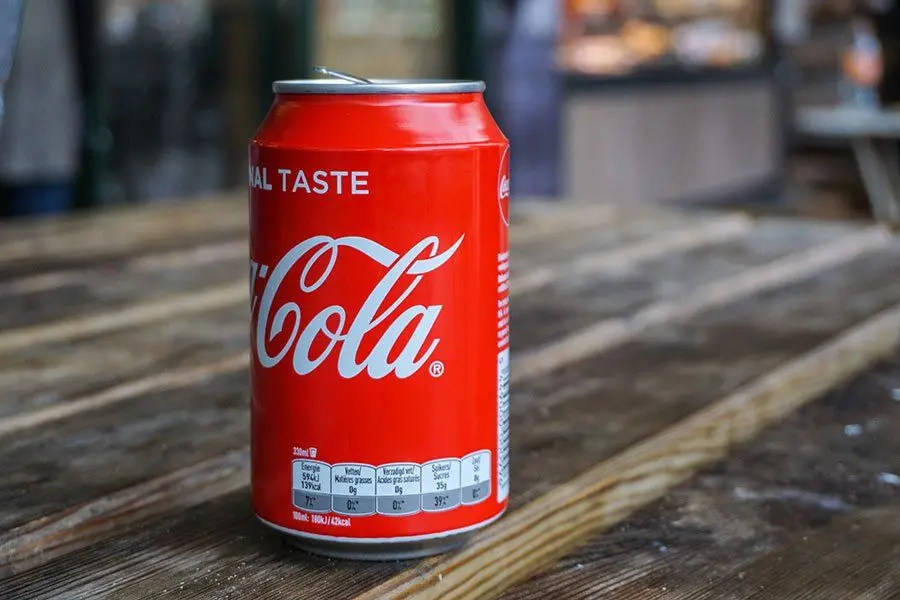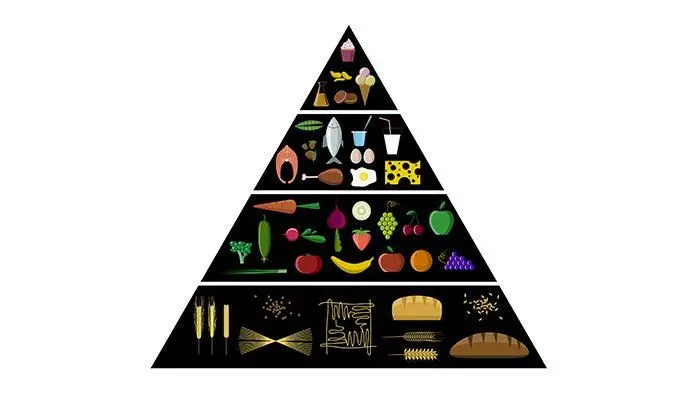1. The number of hours slept really does matter.
There are a lot of things that occur that most people are totally unaware of during sleep. I spent some time reviewing related peer-reviewed research when I suffered from insomnia. That led me to a particular scientist named Matthew Walker Ph.D.
His work was solid and he wrote a book Why We Sleep: Unlocking the Power of Sleep and Dreams, which I decided to read. It changed my life and really tied together some of the work I’ve done in the past! His penmanship is exquisite and easy for the layperson to follow. Gymfailedyou is not affiliated, but I would sure like to interview him at some point.
Here are a few of the points made about sleep I pulled from research and Walker’s book.
- Memory: Sleep deprivation disrupts our ability to form new memories. I’m sure you’ve noticed that you’re more forgetful after a short night sleep.
- Less than seven to eight hours a night has been shown to increase the chances of being overweight and developing type 2 diabetes. It is now considered as one of the major contributors to type 2 diabetes.
- Walker states that in one study, participants given only four hours of sleep a night for six nights, caused participants to be 40% less effective at absorbing the same standard dose of glucose as they could prior to the study. That’s powerful information!
- On top of that, shortened sleep also increases cravings for sweets
- Three decades of research is showing sleep deprivation to be a powerful contributor to the obesity epidemic.
- Levels of ghrelin and leptin are disrupted causing a more ravenous feeling with less than four to five hours of sleep a night. Learn more about leptin and ghrelin here.
- Consistent abbreviated sleep depresses the immune system.
- I’m not a fan of research that’s not peer-reviewed, but this below link from AAA and their 2016 report about acute sleep deprivation and crash risk is a scary reality.
So if you answered seven hours of sleep or less…
- Stick to a sleep schedule
- Avoid caffeine late in the afternoon
- Avoid alcohol before bed
- Relax before bed, e.g., stretch and meditate for fifteen minutes
- Keep the bedroom dark, cool and electronic free
2. The number of times you strength train a week makes a real difference.
Strength training really has merit that goes way beyond aesthetics. Unless you’re beyond your forties, achy joints from weakness, imbalance or wear and tear are probably off your radar. I can’t tell you how many times I hear clients say, “after I turned forty, I started to notice that my joints would ache on occasion.”
So, with that in mind either currently or in your future, a twice a week general strength training program will pay handsomely in dividends for years to come. If you can allow the time, three times a week of moderately intense strength training seems to be the best bang for the buck.
Aside from minimizing joint pain in the future (or now), strength training also:
- Develops and maintains lean, biologically active muscle mass
- Helps elevate HDL and drop LDL cholesterol
- Makes it easier to carry objects, climb stairs, get up off the floor, keep up with your kids/grandkids, wrestle alligators (okay, maybe not that activity), etc.
- Keeps your bones strong
- Helps to maintain healthy hormone levels
- Helps maintain flexibility when doing a full range of motion
So, if you stated that you do not strength training, start by adding one day a week to your agenda.
I assure you, it’s worth it. You’ll likely be sore, but that will subside after a few sessions, so don’t let that scare you.
If you’re unsure where to begin, I suggest hiring a seasoned, educated trainer in a small private studio (I may be a little biased). The education and confidence you’ll leave with will last a lifetime.
If you stated that you strength train once to twice a week, way to go!
If you feel great, keep doing what you’re doing. But if you can, try to add a second or third day a week. Unless you’re so busy that it only causes anxiety. We have to weigh that carefully.
3. Physical activity throughout the week is relevant.
We’re all busy. I get it. You bust your butt all week for your job and then have very little energy left over at the end of the day or for the weekend. But making “movement/physical activity” a priority each day will have a substantial payout.
Forget your 401K, not investing in your physical fitness will leave you spending your retirement just going to doctor appointments. Trust me, I work with a lot of retirees who waited too long to get fit and all of their other appointments during the week are with MD’s. If you ask me, that’s not retirement! And it’s almost all preventable.
Let me tell you about one of my clients whom we’ll call Hercules (why not use that name if I can give him any name I like…). He’s over 75, strength trains (really hard) twice a week, race walks three times a week, walks for distance another three times a week and eats super clean. He looks mid-fifties, acts like a twenty-year-old and is more fit than most of my twenty-year-olds. Oh yeah, he barely ever goes to the doc. That’s what I call retirement!
Here are a few things you can do to add a little physical activity into your life even when you’re busy.
- A brisk walk during lunch
- Wake up thirty minutes early and take a brisk walk before breakfast
- Take the stairs whenever possible
- Park further away
- Look into a hobby that is physical (ice skating, bike riding, dance, martial arts, cliff diving (perhaps not, but to each their own, etc.)
4. Sitting all day at your job is detrimental to your health.
If you’re in this position (no pun intended), you already feel the impact of sitting all day on your duff. Tight hamstrings, protracted shoulders (pulled forward) insert pic of the head forward protracted person, tight traps (the big muscles at the base of your neck), etc. Many of you really don’t have the option to stand at your desk or get up and move frequently.
So, here are a few solutions that can help.
[VIDEO]
5. Meditation may sound too “bohemian” to you, but it has real benefits.
Go back a few years and I would have snickered at the thought of meditating. But, I decided to read a book about it and give it a real chance. Talk about a great decision! I scrapped any parts that were too foo-foo for me and applied some of the following techniques I learned.
- Focus on breathing in and out to stop thoughts from flowing.
- If a thought enters my mind, I recognize it and then return to focusing on my breathing.
- Sometimes, I picture a beach and imagine a breath in is the waves coming onshore and a breath out as the water recedes.
As weird as it sounds, doing this for about five minutes before going to bed made it really easy to fall asleep quickly. That’s worth its weight in gold!
Give it a shot and allow some practice.
6. Constantly clenching your jaw is a real sign that you’re too stressed.
I can’t begin to tell you how detrimental stress is to our physical beings. It’s well documented that chronic stress expedites the wear and tear on our physical and mental state. Consistently elevated levels of cortisol based hormones have negative effects on your:
- Neural tissue
- Skin
- Mood
- Major organs
If you answered yes to constantly clenching your jaw, seriously consider forcing a break into each day to do something relaxing or meditating. Consciously relax your jaw muscles and make it a habit to be aware of times when you clench your jaw. A lot of times, it’s a habitual response to a stress.
7. Compressing/rolling out your muscles has serious benefits.
Several decades ago, the predominant answer to muscular/joint pain was to add either heat or ice and stretch. That’s changed dramatically as we’ve learned more about better methods for keeping muscles limber. By the way, stretching does not alleviate sore muscles from exercise. You can read more about that in my article, How to Avoid or Recover from Delayed Onset of Muscle Soreness After Working Out.
Thanks to the advances in physical therapy, which has trickled down to the fitness world, we have better ways to correct and improve pain from poor movement patterns and tight muscles through:
- Corrective movement exercises
- Muscular compression with foam rollers and other compression tools
So, if you don’t yet have a foam roller at your gym or home, I highly recommend adding one to your “body maintenance” arsenal.
I’ve selected a few pieces of equipment that are inexpensive and will make a real difference in minimizing muscle/joint pain and soreness. You can find them here.
I have not yet produced a guide to using a foam roller, but have found this site to offer great information. If you can get past the excessive use of ads, it’s a decent guide.
If you’re already rolling your muscles one to three times a week, that’s fantastic! You’re ahead of the curve. But, allotting ten to fifteen minutes at the end of the day every day will make a very noticeable difference in your mobility and joint health.
8. Allowing your brain and body to rest once a day can really take the edge off.
Watching television is not the best choice for overall health, but it does help some people “wind down” at the end of the day. A few better choices are:
- Reading
- Meditation
- A slow-paced walk somewhere peaceful
- A 15-minute stretch session before bed (seeing a trend here?)
9. Out of breath from one flight of stairs?
If you answered one flight of stairs gets you out of breath, I highly recommend you making additional physical activity a priority. Strength training, brisk walking, bike riding or any other physical activity will help.
That said, just keep climbing stairs until it takes additional flights to get you out of breath.
If it takes more than five flights of stairs to get you out of breath, you’re doing great!
10. Regular blood work can keep you abreast of dangerous changes.
I don’t make this suggestion so that your doc can put you on pharmaceuticals that can be eliminated with a healthy meal plan. But instead, so that you can get a yearly feedback on your blood chemistry.
he more in tune you are with your body, the easier it is to manipulate the foods your eating accordingly to stay healthy.
The indices you should focus on are:
- Total cholesterol: Far below 200 is a good goal.
- HDL: The higher, the better. Close to 100 is great.
- LDL: Below 100 is a good goal.
- Triglycerides: Below or close to 100 is a good goal.
- Fasting glucose: Close to 100 is normal.
11. Consuming sugar throughout the day has real and very negative consequences.
If there’s one thing I’ll stand on my soapbox for, it’s sugar!
Man do I have a real problem with sugar and how our society seems to embrace sweet things!!!
Is it wrong to enjoy a sweet treat on occasion?
Absolutely not.
There’s a time for everything, but consistently throughout the day has real consequences.
I include more information about this in the “A diet high in carbohydrates for sedentary individuals complicates health” section below.
So, if you change only one thing in your life, make sure it’s to cut back your daily sugar consumption.
I can’t tell you how many clients that have instantly lost weight when I only had them cut sugars way down or out of their dietary intake. Powerful stuff!
12. Coffee is great, but too much is too much!
Coffee (caffeine) is great and a predominant staple in people’s lives.
In fact, there’s nothing wrong with coffee. There is plenty of new research (not financed by the coffee bean industry) supporting the health benefits of consuming moderate levels of coffee.
But here’s the negative part.
Caffeine has an affinity for and saturates adenosine receptors in the brain. During waking hours when caffeine is not present, those same receptors are slowly filled with adenosine until most are saturated. This is the signal to the brain that we are ready for sleep. But, if caffeine is prohibiting adenosine from filling the receptor site, your brain is tricked into staying awake. This is a massive disruption to our circadian rhythm.
In other words, consume your coffee in the morning or early afternoon.
13.A diet high in carbohydrates for sedentary individuals complicates health.
Carbohydrates that are low glycemic and not processed are a great source of energy for our metabolism. When timed properly and eaten with a meal, these carbohydrates have their place in many fit people’s dietary regimen.
But, if you’re daily energy requirements are low from being sedentary, excess calories will be stored and it’s worse for carbohydrates.
Why?
Because they elevate your insulin levels the most. When insulin levels are high, we burn far less fat as a fuel source.
Follow me?
So, consuming excess carbohydrates as the predominant macronutrient is the most efficient way to store our calories. First, that’s not good. Second, it’s typical for the average individual.
In summary, make sure you’re only eating your meals (up to 5 a day) and not consuming calories between meals (especially carbohydrates). Each meal should contain a protein, fat and a carbohydrate except for the last few meals. Just having protein and veggies for the last meal has proven very effective for weight loss.
You can learn more about carbohydrate metabolism in my article: Carbohydrate Metabolism: The Secret to the Success of Slow Carb Diets and Snacks.
14. We all know the downfalls of excess alcohol consumption.
I’m not here to preach about the issues with alcohol. Who am I to talk when I still enjoy two-four microbrews a week. What I am suggesting is to monitor your intake with the following thoughts in mind:
- Alcohol may make you sleepy, but it actually impairs your brain’s ability to cycle in and out of REM and Deep sleep appropriately. This is one of the reasons most people don’t feel 100% on their game after a few drinks the night before. Refer back to the first section on sleep for a better understanding.
- You need to rehydrate any lost water from drinking alcohol. A good rule of thumb is 1 cup of water for every pint, shot or mixed drink. Exact is pointless… what matters is that you consume water when drinking alcohol.
- Weight loss is hindered when you drink. So, if you’re trying to become or stay lean, keep the alcohol minimized to a maximum of two days a week totally four units.
15. Eat your vegetables!
I can’t think of a better vehicle for obtaining a lot of the nutrients your body needs for metabolic reactions to take place. They’re easy to prepare, consume and obtain in this country. We just don’t eat enough of them daily.
I don’t have to tell you what you already know (they’re good for you). Just make it a habit to add one or two additional servings of veggies a day.
If you find it too expensive or difficult to prepare fresh vegetables, simply buy frozen vegetables. They’re actually a perfect alternative to fresh. They retain a great deal of the nutrients simply because they’re picked, blanched and frozen in the same day. This minimizes nutrient loss.
All else fails, there’s still some value to canned vegetables if that’s all your budget allows.
Frequent small meals are easier to process and offer more nutrients throughout the day.
This isn’t always easy. And I don’t make this point based on whatever the fad diet that’s trending, but instead on the perspective of maximizing your nutrient intake throughout the day. It’s a lot easier to achieve a lot of vegetables throughout the day when you’re eating five meals vs one or two meals.
Make sense?
So, how do you achieve many small meals a day?
Planning and preparation is the key. Following a prepared meal plan based on what you would like to achieve makes life a lot easier.
References
Nancy L. Keim, Marta D. Van Loan, William F. Horn, Teresa F. Barbieri, Patrick L. Mayclin; Weight Loss is Greater with Consumption of Large Morning Meals and Fat-Free Mass Is Preserved with Large Evening Meals in Women on a Controlled Weight Reduction Regimen, The Journal of Nutrition, Volume 127, Issue 1, 1 January 1997, Pages 75–82
M Irwin, J McClintick, C Costlow, M Fortner, J White, and J C Gillin. Partial night sleep deprivation reduces natural killer and cellular immune responses in humans. The FASEB Journal, Published Online: 1 Apr 1996 https://doi.org/10.1096/fasebj.10.5.8621064
Karine, Rachel, Leproult BS Dr. Eve Van Cauter Ph.D. Impact of sleep debt on metabolic and endocrine function. The Lancet, Volume 354, Issue 9188, 23 October 1999, Pages 1435-1439
Kristen L. Knutson, Karine Spiegel, Plamen Penev, Eve Van Cauter. The metabolic consequences of sleep deprivation. Sleep Medicine Reviews. Volume 11, Issue 3, June 2007, Pages 163-178.
Elaine Perry, Matthew Walker, Jan Grace, Robert Perry. Acetylcholine in mind: a neurotransmitter correlate of consciousness? Trends in Neurosciences. Volume 22, Issue 6, 1 June 1999, Pages 273-280
Timothy Roehrs, Ph.D., and Thomas Roth, Ph.D., Sleep, Sleepiness, and Alcohol Use, Alcohol Research and Health, Vol. 25, No. 2, 2001 Pages 101-109
Spiegel K, Tasali E, Penev P, Cauter EV. Brief Communication: Sleep Curtailment in Healthy Young Men Is Associated with Decreased Leptin Levels, Elevated Ghrelin Levels, and Increased Hunger and Appetite. Ann Intern Med. 2004;141:846–850
Matthew P. Walker & Robert Stickgold. Sleep-Dependent Learning and Memory Consolidation, Neuron, Volume 44, Issue 1, 30 September 2004, Pages 121-133.
















